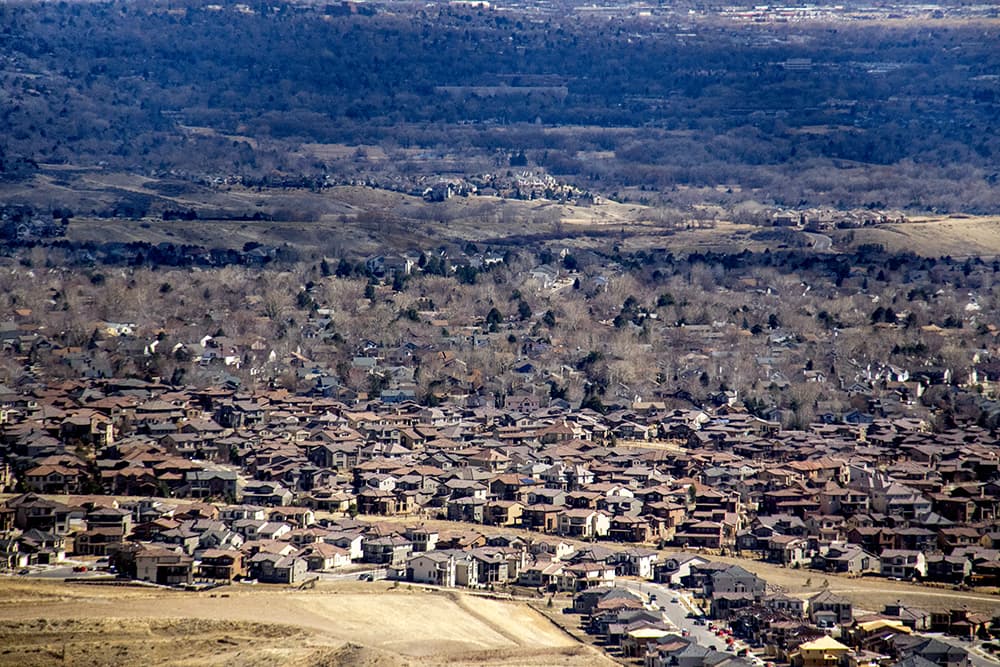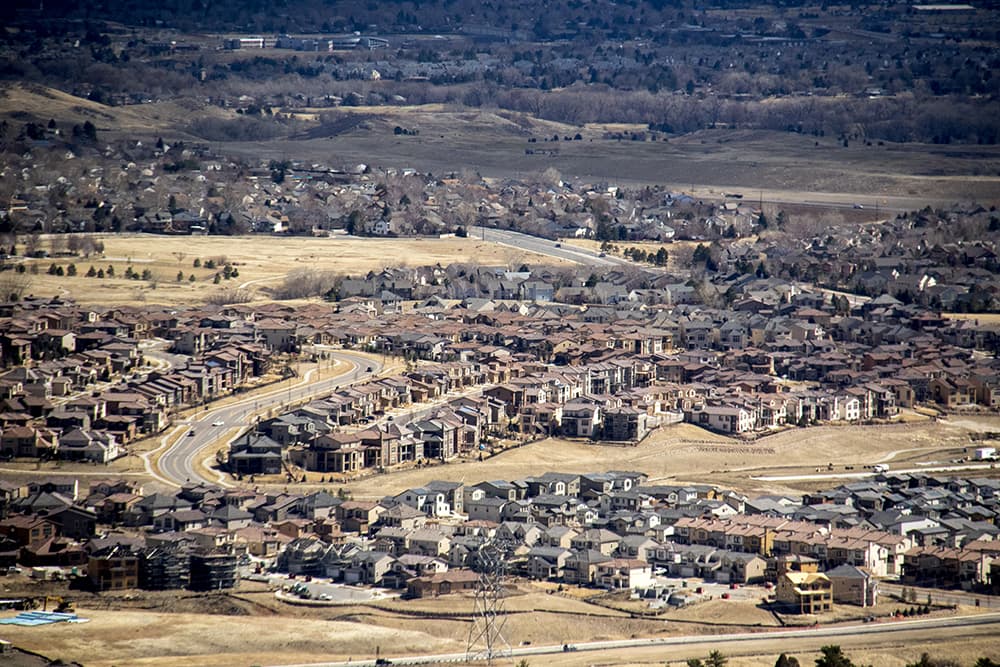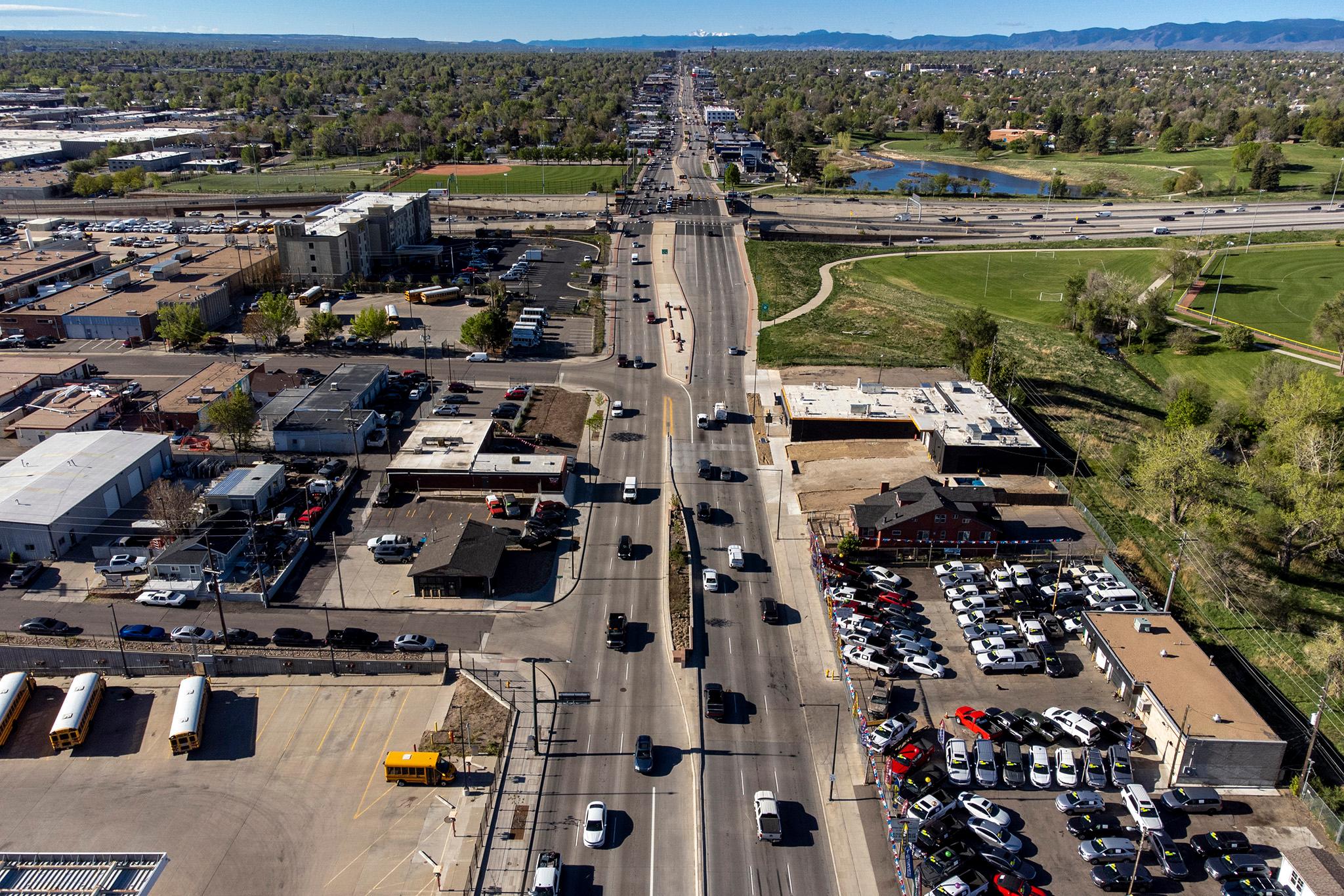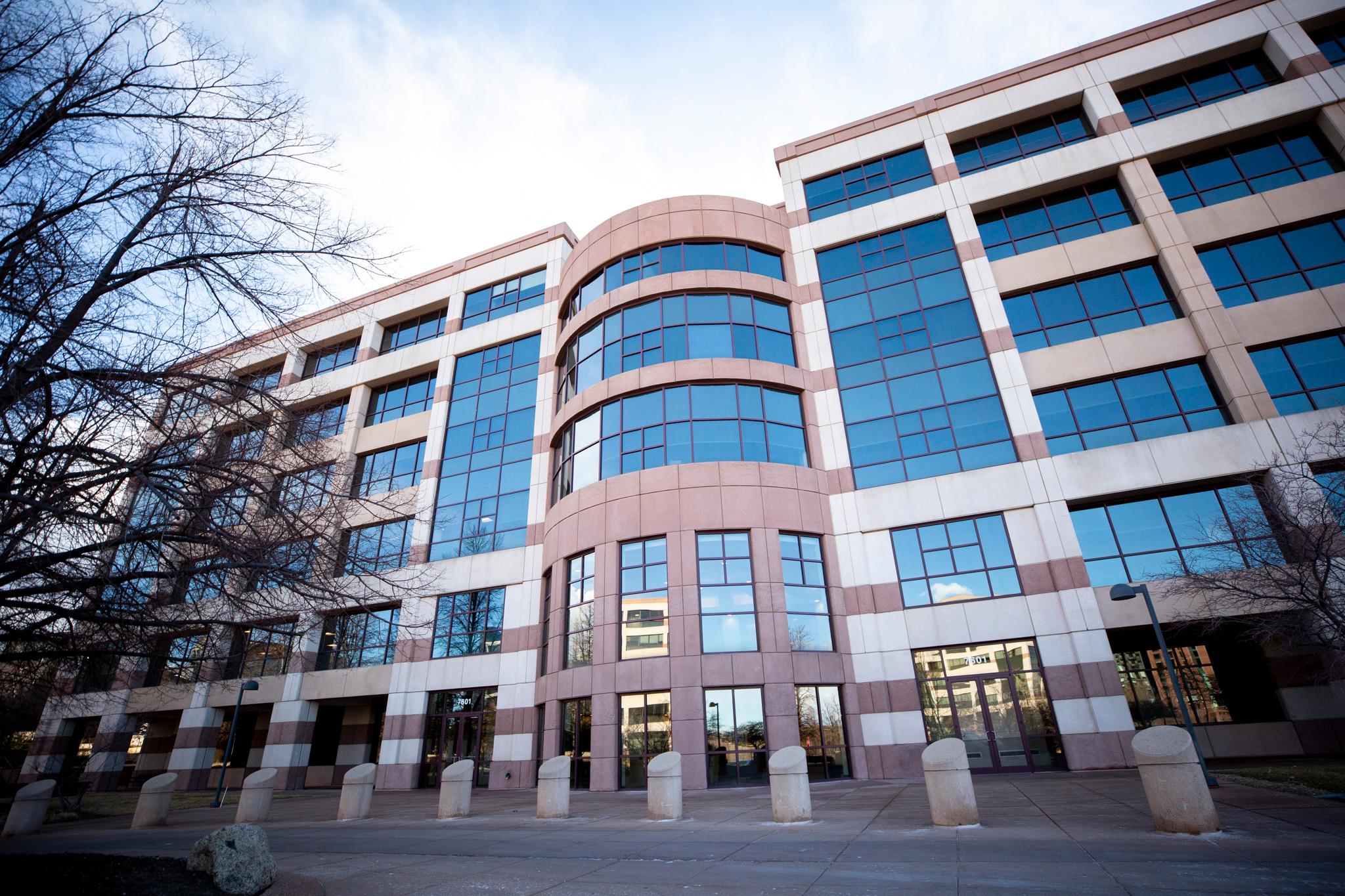
A proposal that could appear on Colorado's 2018 electoral ballot would strictly limit new residential construction in Denver and several other counties on the Front Range.
It's scaring the heck out of the construction industry and stirring up a lot of questions, but it's a long way from reality. Basically, the proponents would need to win a court challenge and collect nearly 100,000 signatures before it would even get on the ballot.
One of its main organizers, real-estate broker and landlord Daniel Hayes, told Denverite that he hopes the initiative will free Colorado from its dependence on a housing economy. He noted, without prompting, that it would especially drive away unauthorized immigrants.
He's ready to spend up to $400,000 on a campaign to get it on the ballot, he said.
The proposal:
Hayes and Julianne Page are trying to put a proposal on voters ballots in Colorado this November. Hayes previously got a similar law passed in Golden.
In 2019 and 2020, the number of housing units in certain Front Range counties could only grow by 1 percent. That would cut Denver's housing growth in half; the county's housing stock grew by about 2.4 percent in 2015.
Hayes said it's meant to bring the Front Range in line with the national growth rate. The counties affected would be Adams, Arapahoe, Boulder, Broomfield, Denver, Douglas, El Paso, Jefferson, Larimer and Weld. That's a stretch that runs from Colorado Springs all the way to Wyoming.
It wouldn't be forever: Starting in 2021, voters could collectively decide to remove the growth limits.
How does it get on the ballot?
The initiative is called Ballot Proposal No. 66.
It's made it through a couple important steps, but it has a long way to go before it can appear on ballot. First, a state board determined that it generally fit the requirements for ballot initiatives.
However, there's already a legal challenge claiming that the initiative is too broad and runs afoul of the state constitution, in part by "attempting to supersede" the authority of local governments, particularly in the way it sets rules for voters to later change the growth limits.
"Initiative #66 portrays that it is making certain local growth decisions more open to local attempts at direct democracy in a way that, as a matter of constitutional law, it cannot do," states a filing on behalf of petitioner Scott Smith. (We've reached out to find out more about Smith.)
If the Colorado Supreme Court rejects the ballot proposal, then Hayes and Page are back to square one. They could still rewrite the initiative and start again, though, as long as they get the new language submitted by March 23.
If they succeed, then it's on to the next step: signatures. They would need to get 98,492 Colorado voters' signatures by Aug. 6. Then the question would go on the ballot this November and would become law if a simple majority (50%-plus) of voters approved.
Hayes acknowledged that there "could be some truth" to the constitutionality argument against the proposal. "It’s a sticky issue. It’d be so much better as an amendment to the constitution," he said. But they didn't want to try a constitutional amendment because that's a lot harder. They would have had to collect signatures from across the state and win 55% of the final vote.
The arguments:
Erica covered this in depth earlier -- but, basically, Hayes thinks that limiting construction will also slow down traffic and demand for infrastructure.
"No water, rampant crime, bad schools — you won’t be able to get to the mountains, you won’t be able to go anywhere," said Hayes, 71.
He acknowledged the economy depends on housing, and says that's inherently unstable. "We have a home-building economy. That’s a lousy economy. We could be heading into a recession," he said today. "I think if we stabilize growth at the national growth rate of 1 percent, it would stabilize our economy."
The counter-argument is that housing limits will worsen the housing crisis, causing financial and personal pain to tens of thousands of people who are struggling already. Research from the New York Fed found that construction limits like zoning are "highly correlated with high prices."
A Brookings Institution report states that permit caps"raise the aggregate price of all housing affected by them." They can encourage builders to "build larger houses rather than attached housing units," trying to get more money for each of their limited supply of units.
"The effect of supply restrictions will be to deny the opportunity for low income households (regardless of ethnicity or age) to move into such areas."
Hayes' response: Driving people away is part of the plan.
The housing limit would drive away "10 percent of the population, off the bat," he said. That, he theorizes, would keep housing prices stable while keeping Colorado the same.
Unprompted, Hayes noted that such a move would heavily affect unauthorized immigrants.
"Everybody knows that 60 percent of the labor to build a house is undocumented, " he said. " ...They don’t do anything for the economy, no," he added, before changing the topic. "I don’t want to get into some racist argument — because that’s what it will turn into."
(For context, undocumented immigrants pay about $12 billion in taxes nationwide, per the Institute on Taxation and Economic Policy.)
Previously, Hayes sponsored a series of municipal initiatives that required that the vehicles of unlicensed drivers be towed and impounded. It was widely seen as targeting undocumented immigrants, in part due to Hayes’ own reportedcomments.
"It's a disaster, and we'll have more of these Hernandezes driving off the road and killing three or four people at a time," Hayes said, according to a 2008 article from The Rocky Mountain News. Hayes said part of his motivation in pressing those earlier measures was his father's death at the fault of a drunk driver.
Hayes lives in unincorporated Jefferson County.
Correction: This article originally quoted Hayes as previously saying that the vehicle impoundment bill was "about getting Hernandezes off the road." The exact wording is now included above.











